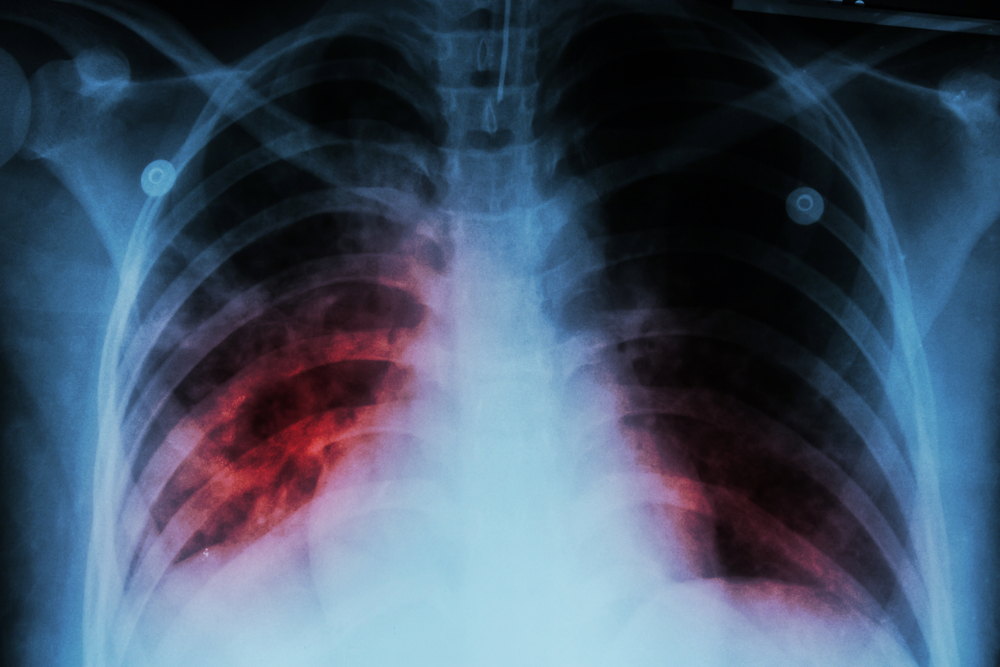News
Despite detente, sanctions on North Korea fan TB epidemic

Two weeks ago, the Geneva-based Global Fund to Fight AIDS, Tuberculosis and Malaria ended all its North Korea-related grants, saying it could no longer accept the North’s “unique operating conditions.” (Shutterstock)
PYONGYANG, Korea, Democratic People’s Republic Of — Dr. O Yong Il swings open a glass door with an orange biohazard sign and gestures to the machine he hoped would revolutionize his life’s work. As chief of North Korea’s tuberculosis laboratory, Dr. O saw it as a godsend.
Tuberculosis is North Korea’s biggest public health problem. With the American-made GeneXpert, his lab would be able to complete a TB test in two hours instead of two months.
It took years, but Dr. O got the machines, only to discover GeneXpert needs cartridges he can’t replace. It’s not clear how they would violate sanctions imposed on North Korea because its nuclear program, but no one, it seems, is willing to help him procure them and risk angering Washington.
Despite budding detente on the Korean Peninsula since the summit between President Donald Trump and North Korean leader Kim Jong Un, sanctions championed by the U.S. and Trump’s “maximum pressure” policy continue to generate hesitation and fear of even unintentional violations. And that is keeping lifesaving medicines and supplies from thousands of North Korean tuberculosis patients.
Dr. O’s laboratory, built with help from Stanford University and the Christian Friends of Korea aid group, has essentially been running on empty since April. The idle GeneXperts may soon be the least of his troubles.
Two weeks ago, the Geneva-based Global Fund to Fight AIDS, Tuberculosis and Malaria ended all its North Korea-related grants, saying it could no longer accept the North’s “unique operating conditions.”
The fund has dispersed more than $100 million since 2010 to help North Korea control tuberculosis. Last year it supported the treatment of about 190,000 patients.
Spokesman Seth Faison said the fund is providing buffer stocks of medicines and health products through June next year. It welcomes the “positive diplomatic efforts underway” between Pyongyang and its neighbours, he said, but the fund’s position stands.
The decision shocked the doctors at the Pyongyang tuberculosis lab, who praised Global Fund for its past work but accused it of bowing to pressure from the United States, one of its biggest donors.
The fund’s retreat sparked outrage outside North Korea as well. In a letter published in the medical journal Lancet, Harvard physician Kee Park, director of North Korea programs for the Korean American Association, warned the fund’s withdrawal could create a public health crisis and called the move “a cataclysmic betrayal” of the North Korean people.
If tuberculosis patients reduce or stop their medications early, or take lower-quality ones, the bacteria that cause their disease can develop a resistance to the two most powerful anti-TB drugs, making the condition harder and more expensive to treat.
The Eugene Bell Foundation, which supports the treatment of more than 1,000 patients at 12 centres across North Korea, has been solely focused on fighting multi drug-resistant tuberculosis since 2008.
What worries Stephen Linton, who founded the group in 1995, is what will happen to the patients who relied on Global Fund support. Many will die. But not before infecting many others.
“This is an airborne infection,” he said. “Every time you are in a closed space with a TB patient, you are at risk. So for all the people that travel to North Korea, all the tourists, all the diplomats — they are a risk to everyone who comes near them.”
This was supposed to be the year Eugene Bell tripled to 3,000 the number of patients it treats.
The foundation has developed prefabricated wards for North Korean patients. The single-story duplexes can be put up quickly by three or four people, meaning the process can be monitored while Eugene Bell people are in the country on biannual visits. The wards are paid for when they are shipped, so the money isn’t lining pockets of government officials or funding missile programs.
Linton said everything was going well until December. A pilot project with 10 wards is operating on the outskirts of Pyongyang.
“Then we ran into this sanctions problem,” he said. “It’s not that we can’t send anything in. But these buildings have a metal roof — a panel that has metal in it, aluminum — and that’s the issue.”
Linton said Eugene Bell has $250,000 of prefabricated wards rotting in a dockyard outside Seoul. As an American, he is concerned the U.S. will be held responsible for whatever happens with tuberculosis in North Korea.
“Unless something is done and done soon, this medical emergency will become known in Korea as the ‘Sanctions TB Epidemic,’ “ he said. “And it will haunt the peninsula for generations.”





















